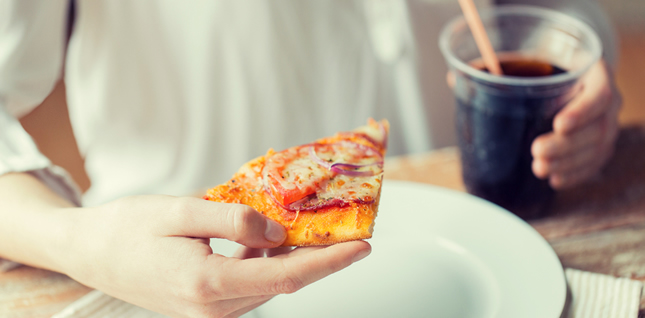
Put your food cravings to an end.
Many of us have commented that we have an intense, urgent or abnormal desire for a particular food. A study in The Journal of Nutrition found that 97 percent of women and 67 percent of men reported episodes of food cravings. Scientists have looked at what foods people desire and tried to unravel why it is we crave particular foods. Is the desire driven by actual physical needs – I’m low on iron so I crave a steak? Or, is a particular food lust all in our head?
Rewards, the Brain and Hormones
Similar to Pavlov’s dog, perhaps there was a time when grandma made cookies and the experience at her house left you with pleasant memories. The pleasant memories were a physical and emotional boost associated with cookies. Of course, the taste of great cookies further reinforced the experience.
When scientists looked at MRI scans of the brain when cravings were induced, they saw three areas light up – the hippocampus, caudate and insula. The hippocampus helps with memory and reinforces reward-seeking behavior. The caudate helps us to form habits – including food-related habits. The insula plays a role in the emotional connection between food and cravings.
In addition to our brains having an influence on cravings, hormones are also involved. When enjoyable foods are consumed, hormone receptors light up. High sugar and carbohydrate foods boost our levels of serotonin which has a calming effect. When we’re stressed, this could be a reason we often seek high-sugar foods.
Social Acceptance
In the United States, it has become socially acceptable to crave particular foods. For example, it is culturally acceptable that premenstrual women crave chocolate. Of course they do, everyone knows that – right?
Interestingly, women from other cultures do not report similar cravings. Additionally, if premenstrual hormones trigger chocolate cravings, then post-menopausal women should report that chocolate cravings disappear. Post-menopausal women report the craving for chocolate does not disappear.
Are we conditioned by friends, media and social outlets that it is normal or hip to crave particular foods? I say yes.
Visual Stimulus
A photo of a favorite food can tie our past learned pleasure responses, hormones and our social prejudices all together and send us to the vending machine, cupboard or convenience store for a quick fix.
Guess what? Advertisers know this and help entice you to enjoy their products with products carefully placed within pleasurable scenes in television programs or in highly desirable advertising locations.
“Wow, look at that great photo of ice cream. I am craving ice cream. Isn’t that strange?” Nope. Not strange at all. It’s planned.
Controlling Food Cravings
I’ve only covered a few of the reasons we experience food cravings. The next time you have an intense hankering for a particular food, step back and ask yourself if that perceived need is driven by something in your past, a socially accepted behavior or a visual cue.
Once you’re consciously aware of the food craving, step away for a moment and decide if you really need a particular food and if you would feel better – or worse – after consuming that food. If the food is a fat-burning food, plan to enjoy that food at your next snack or meal. If the food is fat-storing, like candy, cookies or ice cream, drink a full glass of water or go for a short walk and then wait 20 minutes. If you still have an intense desire for the food, allow yourself one serving of the food and then get back to being a Fat-Burning Machine.

Pingback: Is Fruit Good or Bad for Your Health? - Become a Fat-Burning Machine
Pingback: 10 Labor Day Barbecue Tips - Become a Fat-Burning Machine
Pingback: 6 Ways to Beat Your Sugar Addiction - Become a Fat-Burning Machine